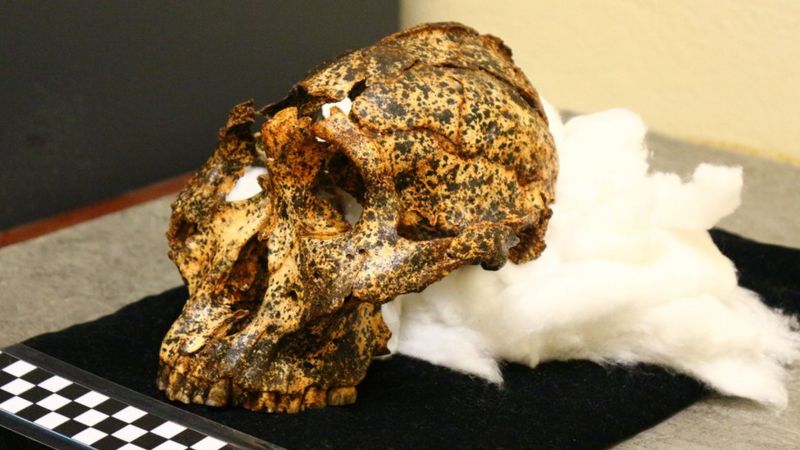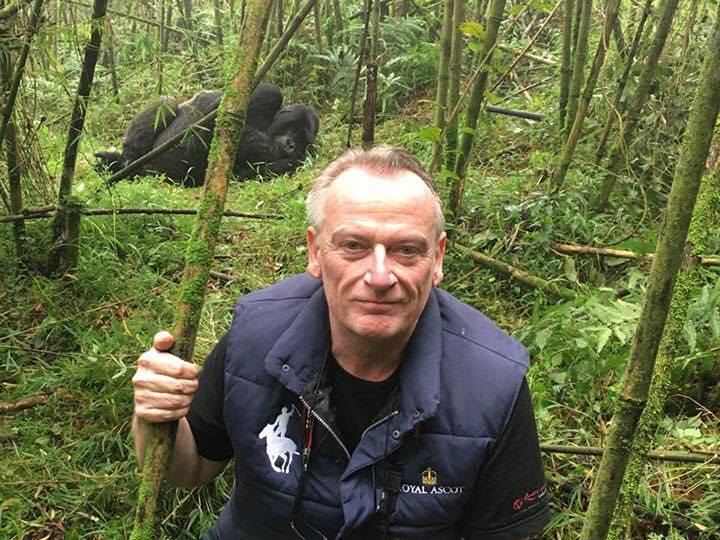
When Digital Human was released in 2018, the opening chapter is all about the history of humankind. I don’t claim to be an expert on history, but I do know a lot of history, having visited museums in over 100 countries around the world.
So, I was fairly offended by the only one-star review the book received on Amazon (July 2018) from a Vine top reviewer (who got the book for free):
It starts with a description of early hominid evolution that is so contradictory, inaccurate and just plain bonkers that I gave up at page 19 in disgust.
They obviously didn’t realise that I was providing a brief history of humans in 20 pages and not trying to be Eric Hobsbawm. Anyways, I won’t get into an argument over it but, if you want to read the bit they object to for free, it’s here:
The Origins of Moneykind, Part One: Shared Beliefs
The reason why I bring this up now is that they’ve just made further discoveries of the history of humankind in South Africa, so I thought I would explain the background to the chapter on the origins of moneykind.
At the time of writing the book, several things came together at the same time. First, a visit to The Cradle of Humankind, a museum in South Africa that is fascinating and talks about the history of humanity from the first hominid bones found dated to seven million years ago to today. Second, a visit to the Mountain Gorillas of Rwanda. Third, reading Sapiens by Yuval Noah Harari.
There is more, but these three were the most important ones.
First, The Cradle of Humankind museum is incredible. It began when the archaeologist Lee Burger was researching the site 50 miles north of Johannesburg in the 1990s. He had a research grant that was just coming to an end, and they hadn’t discovered anything of significance. They were about to give up. With just a few days away from the funding running out, he had a walk with his young son who found something weird under a tree. He asked his dad what it was and it turned out to be one of the most significant fossil finds of the twentieth century, leading to the head archaeologist Ron Clarke finding Little Foot.
Almost four million years old, it gave the project the credibility it needed to look further and, as they researched, created The Cradle of Humankind UNESCO world heritage site, due to its richness of discovery. The reason researching such fossils is difficult is because ancient humans would die on the soil, but the soil was porous and open with a complex and open cave system underneath. Over millions of years, this means that bones are spread over hundreds of metres as the skeleton sinks into the soil, falls into the cave system and becomes fossilised. It’s no wonder it takes decades to try to find and assemble enough parts of a body to understand what the creature was.
It’s a fantastic place to visit. Thoroughly recommended.
The second great experience was visiting Rwanda a few years ago and discovering the Gorillas in the Mist.
I never knew that gorillas are such peaceful animals. They look fierce but aren’t carnivores and, for over a quarter century, have been visited by tourists with guides and without any harm to any human. They are gentle and beautiful creatures who live as families.
The thing is the families reach a certain size and the younger males get a bit frisky. But they’re not allowed to be frisky. If they start any activity with any female, he gets thrown out. This is why families reach a certain size and grow no bigger. Typically, a gorilla family will be twenty or so individuals. This is a key point as humans or, rather, homo sapiens, could live and work in far larger groups than these small families and is why homo sapiens dominate.
This came home to me when I read Sapiens, a great book. My lasting memory of this book is that homo sapiens not only developed into using tools and being able to talk, but also could work in far larger groups than other hominid forms, who behaved more like apes and lived in small families.
Fiction has enabled us not merely to imagine things, but to do so collectively. We can weave common myths such as the biblical creation story, the Dreamtime myths of Aboriginal Australians, and the nationalist myths of modern states. Such myths give Sapiens the unprecedented ability to cooperate flexibly in large numbers. Ants and bees can also work together in huge numbers, but they do so in a very rigid manner and only with close relatives. Wolves and chimpanzees cooperate far more flexibly than ants, but they can do so only with small numbers of other individuals that they know intimately. Sapiens can cooperate in extremely flexible ways with countless numbers of strangers.
In other words, shared beliefs that could be communicated with a larynx, that many other animals did not use this way, enabled homo sapiens to work in groups larger than twenty and therefore became the strongest hominid form. Other hominids lived like apes in families; sapiens could work in groups of many families. That’s why homo sapiens became the dominant, and now the only, human form.
Why is this important?
Because 200,000 years later, we live in a world forged by our shared beliefs. Religious beliefs, belief in governments, belief in law, belief in structure, belief in borders, belief in countries, beliefs that create the matrix in our heads.
A key part of this is that, if you strip those beliefs back, there are no countries, there are no companies, there are no currencies, there is no value in the dollar, and governments only exist in our shared beliefs that they are there.
This is a core part of the friction between the libertarians and the statists. The libertarians believe in the power of democracy, the structure of the network, the trust in technology; the statists believe in the power of law and order, the structure of government, the trust in central states.
Decentralise and democratise or remain centralised and managed. Which do you prefer?
Anyways, as I say, this only occurred to me because I woke up to this news this week :
Australian researchers say the discovery of a two-million-year-old skull in South Africa throws more light on human evolution. The skull was a male Paranthropus robustus, a "cousin species" to Homo erectus - a species thought to be direct ancestors of modern humans. The two species lived around the same time, but Paranthropus robustus died out earlier.
The research team described the find as exciting. “Most of the fossil record is just a single tooth here and there so to have something like this is very rare, very lucky”, Dr Angeline Leece told the BBC.
Chris M Skinner
Chris Skinner is best known as an independent commentator on the financial markets through his blog, TheFinanser.com, as author of the bestselling book Digital Bank, and Chair of the European networking forum the Financial Services Club. He has been voted one of the most influential people in banking by The Financial Brand (as well as one of the best blogs), a FinTech Titan (Next Bank), one of the Fintech Leaders you need to follow (City AM, Deluxe and Jax Finance), as well as one of the Top 40 most influential people in financial technology by the Wall Street Journal's Financial News. To learn more click here...


